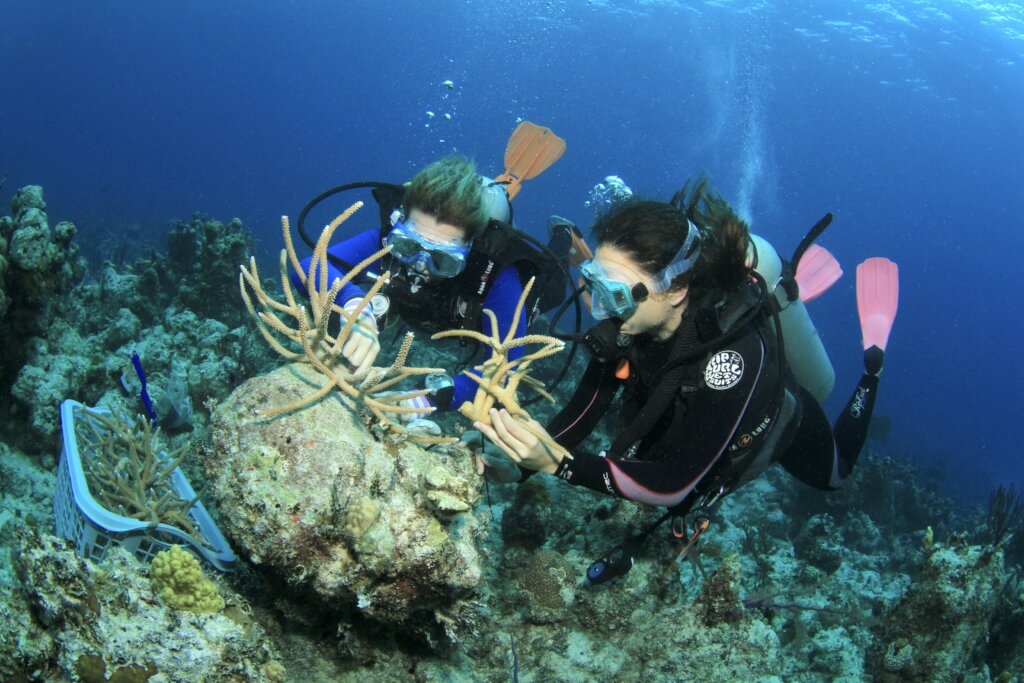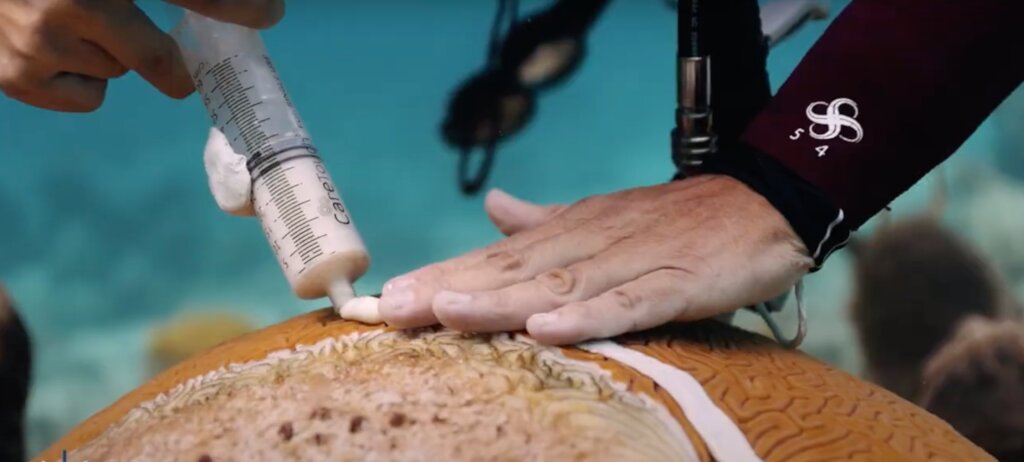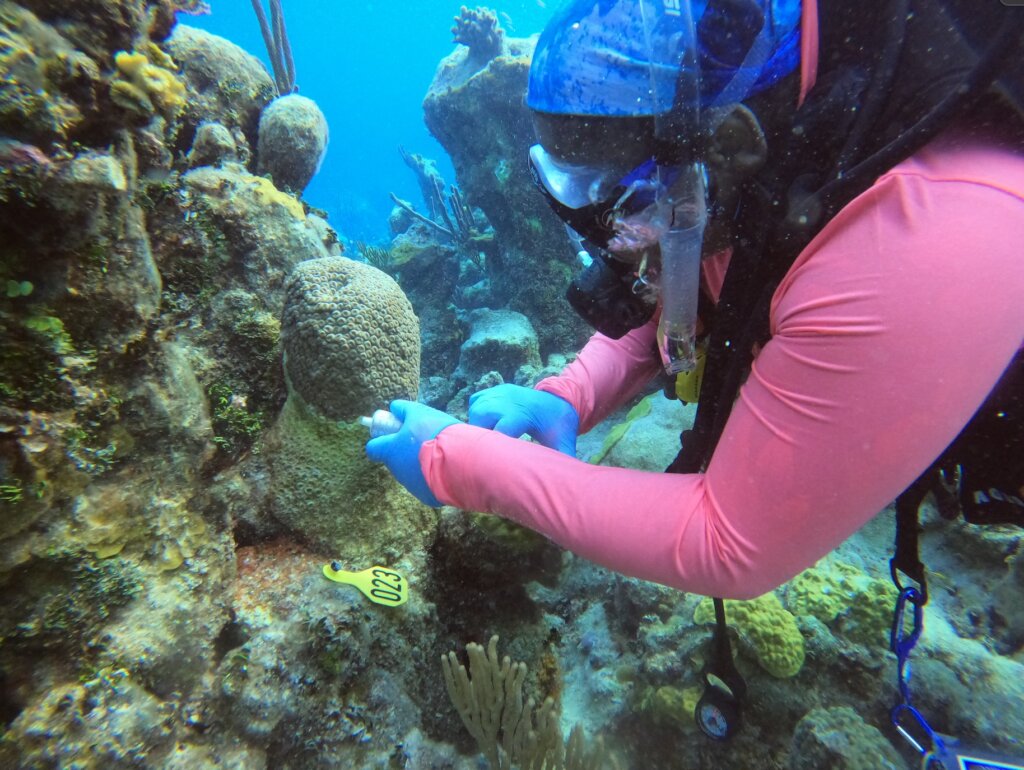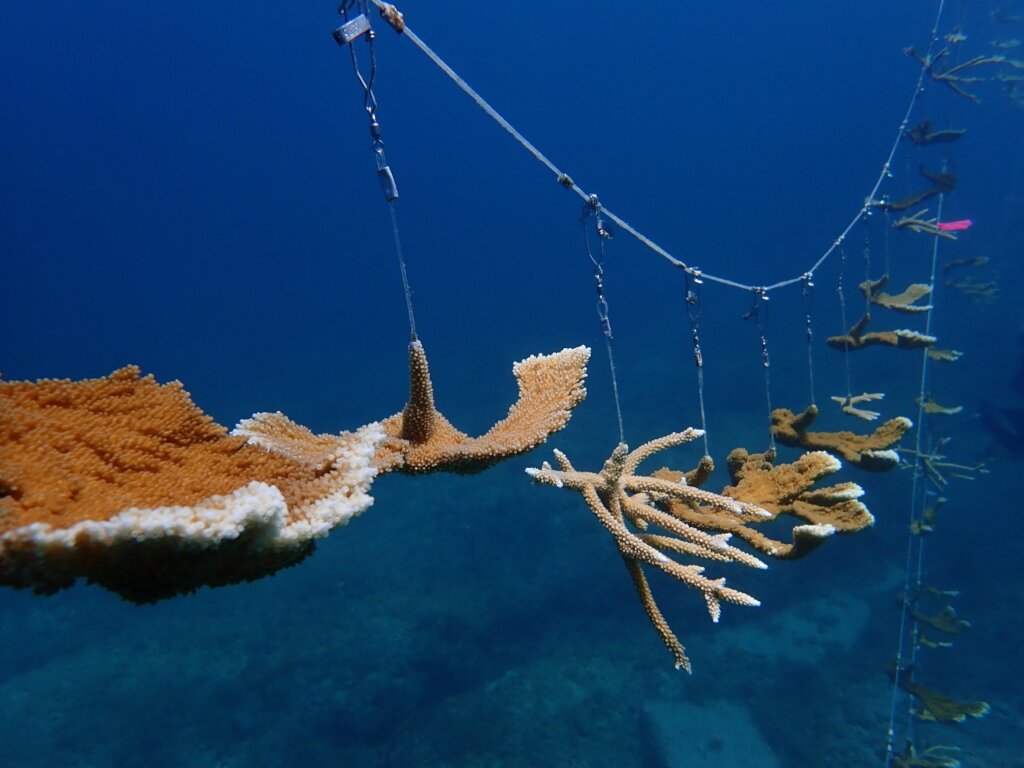By Craig Dahlgren | Executive Director
Caribbean coral reefs are under increasing threat from a number of direct human impacts and natural disasters fueled by climate change. Increasing sea temperatures may be the greatest overall threat to most if not all Caribbean coral reefs over the next 30 years, but the emergent disease – Stony Coral Tissue Loss Disease (SCTLD) – has spread like wildfire throughout the region, threatening several coral species with extinction and changing the diversity of coral reefs rapidly. Because it infects so many reef building species, spreads at a rate of over a mile every month and kills so rapidly – killing corals that took centuries to grow in a matter of weeks, this disease is perhaps the greatest threat to Caribbean marine biodiversity and the value of Caribbean reefs. Because Caribbean communities are so dependent on their coral reefs for tourism, food, income, coastal protection, recreation, and the cultural significance that they hold, this crisis facing Caribbean reefs is both a natural disaster in the making and a crisis that threatens lives, livelihoods, and cultures throughout the region.
From our base of operations in The Bahamas, the Perry Institute for Marine Science is working to reverse the decline of the region’s coral reefs through innovative scientific studies, building local capacity, and on the ground conservation and restoration of coral reefs. Your support through GlobalGiving has contributed to our recent successes including helping us to train to train local students to scuba dive and experience their underwater treasures, teaching them about the ecology of their reefs along the way. We have also certified 8 Bahamians as scuba instructors and trained them to be Reef Rescue Diver Instructors so they they can teach others how to restore corals to reefs. We are also growing over 10,000 critically endangered corals in nurseries throughout the Bahamas as well as other Caribbean islands and have planted over 8000 corals from nurseries back to reefs. Finally, we have assessed the damage of Stony Coral Tissue Loss Disease (SCTLD) across most of The Bahamas and have treated thousands of corals with lifesaving antibiotics to prevent local extinctions.
While we are proud of what we have accomplished together, our work has only just begun. We will continue to build on this success to continue to scale up our efforts and expand them regionally throughout the Caribbean. We thank the GlobalGiving Community for its continued support and hope you will continue to support our work.
Links:
Project reports on GlobalGiving are posted directly to globalgiving.org by Project Leaders as they are completed, generally every 3-4 months. To protect the integrity of these documents, GlobalGiving does not alter them; therefore you may find some language or formatting issues.
If you donate to this project or have donated to this project, you can recieve an email when this project posts a report. You can also subscribe for reports without donating.
Support this important cause by creating a personalized fundraising page.
Start a Fundraiser


